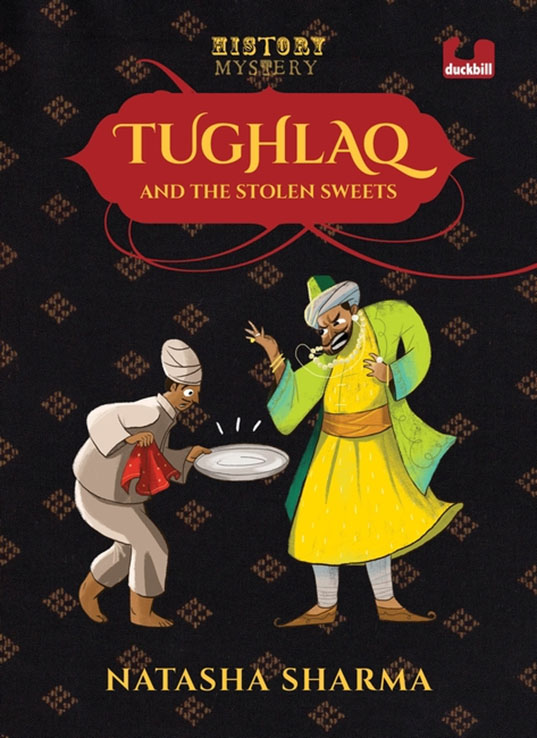Many years ago, one of our regular sojourns to the Delhi Book Fair found us buying books Written in Blood: History with the Gory Bits Left In and a few titles in the Horrible History Series. The normal childhood fascination with the macabre meant that those were one of the few books on history I willingly finished reading. Reading Natasha Sharma’s Tughlaq and the Stolen Sweets reminds me of those books. The book is a fictional story revolving around the ‘theft’ of a fruit prized by the Sultan, and the reluctant ‘volunteers’ made to identify the thief.
In a note at the end for readers, Natasha Sharma provides commentary and contextualization to the story. In describing her research on the Sultan, she writes that she ‘found the Sultan’s personality rather difficult to understand’, as he combined a deep knowledge of philosophy, astronomy, medicine and logic with a mercurial temper and a capacity for unfathomable cruelty. While the author goes on to describe other linkages in the story to historical events and characters, it was this reference which initially piqued my curiosity.

